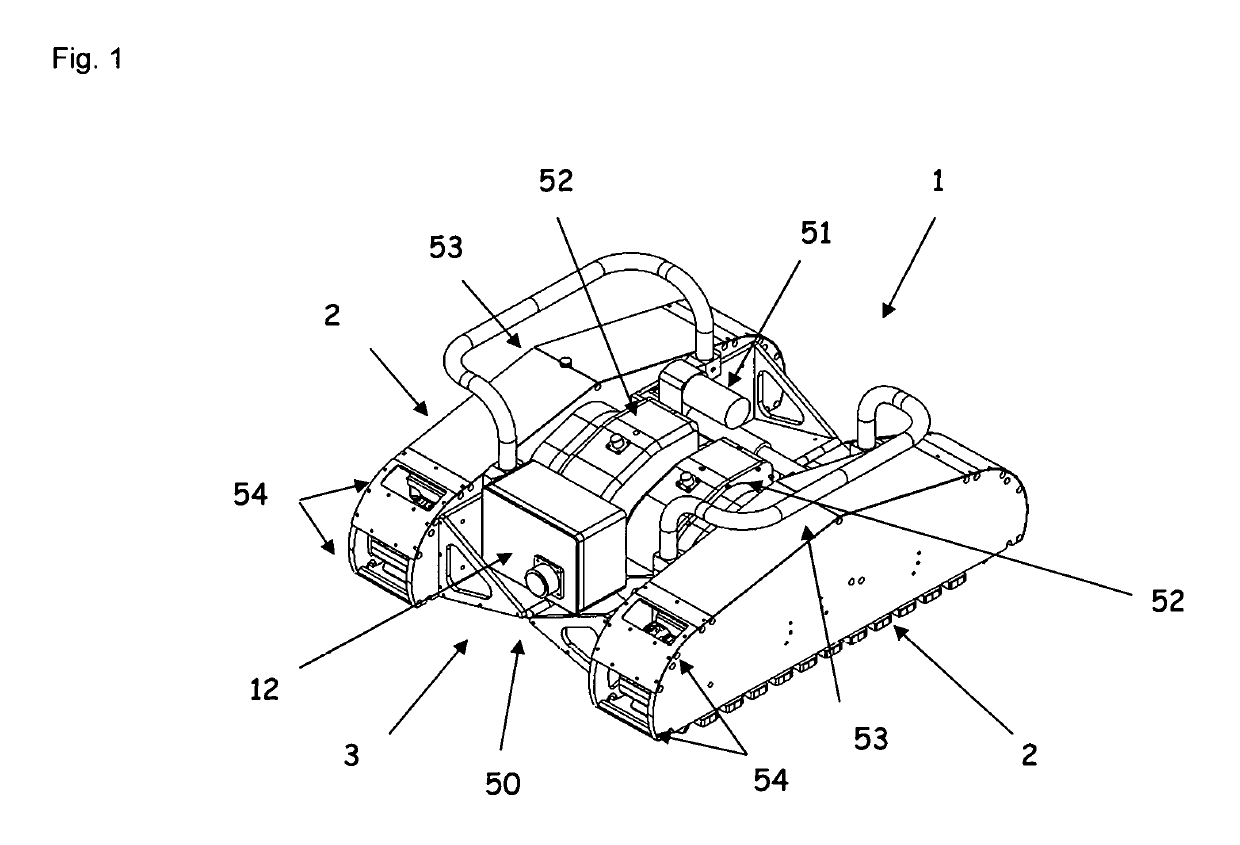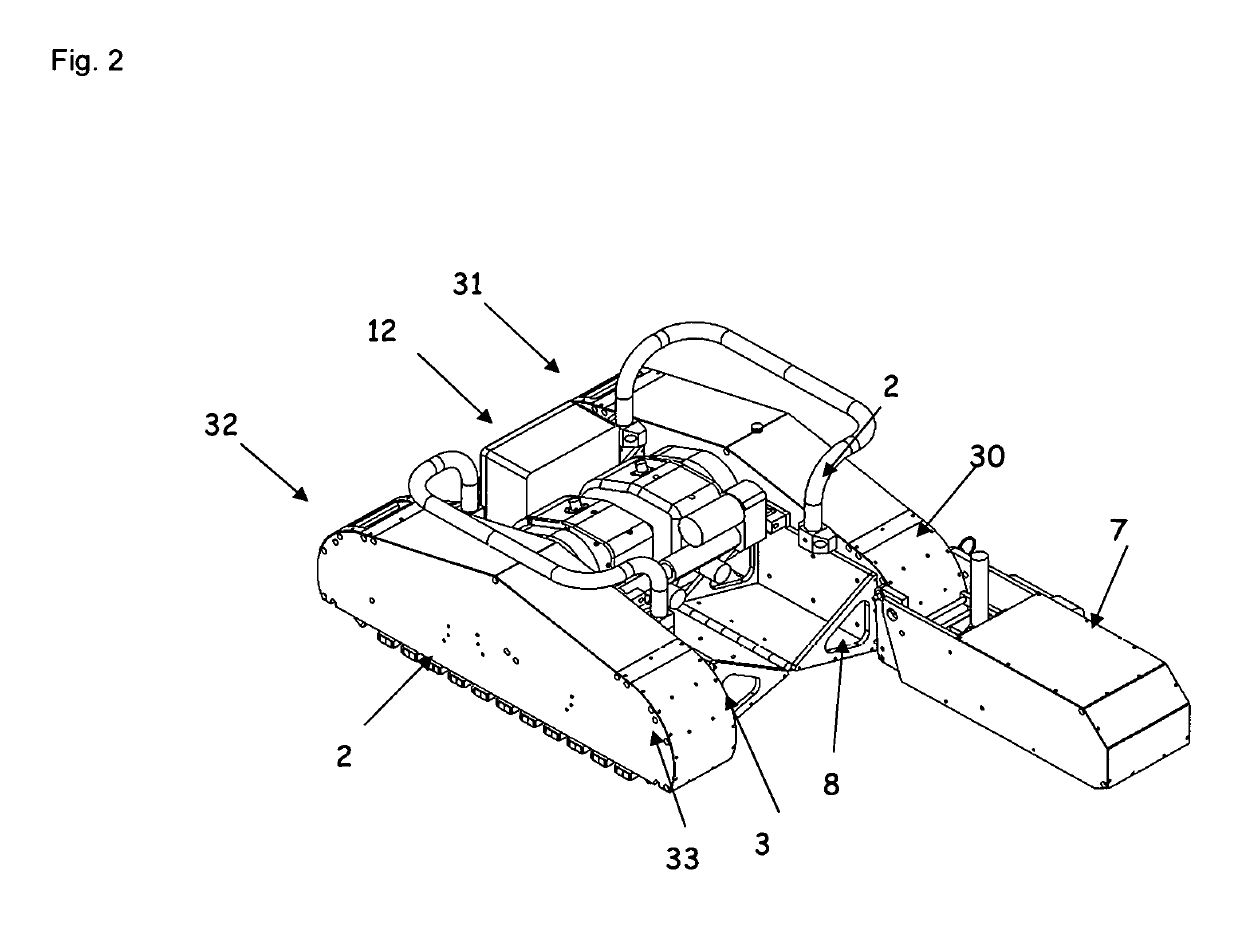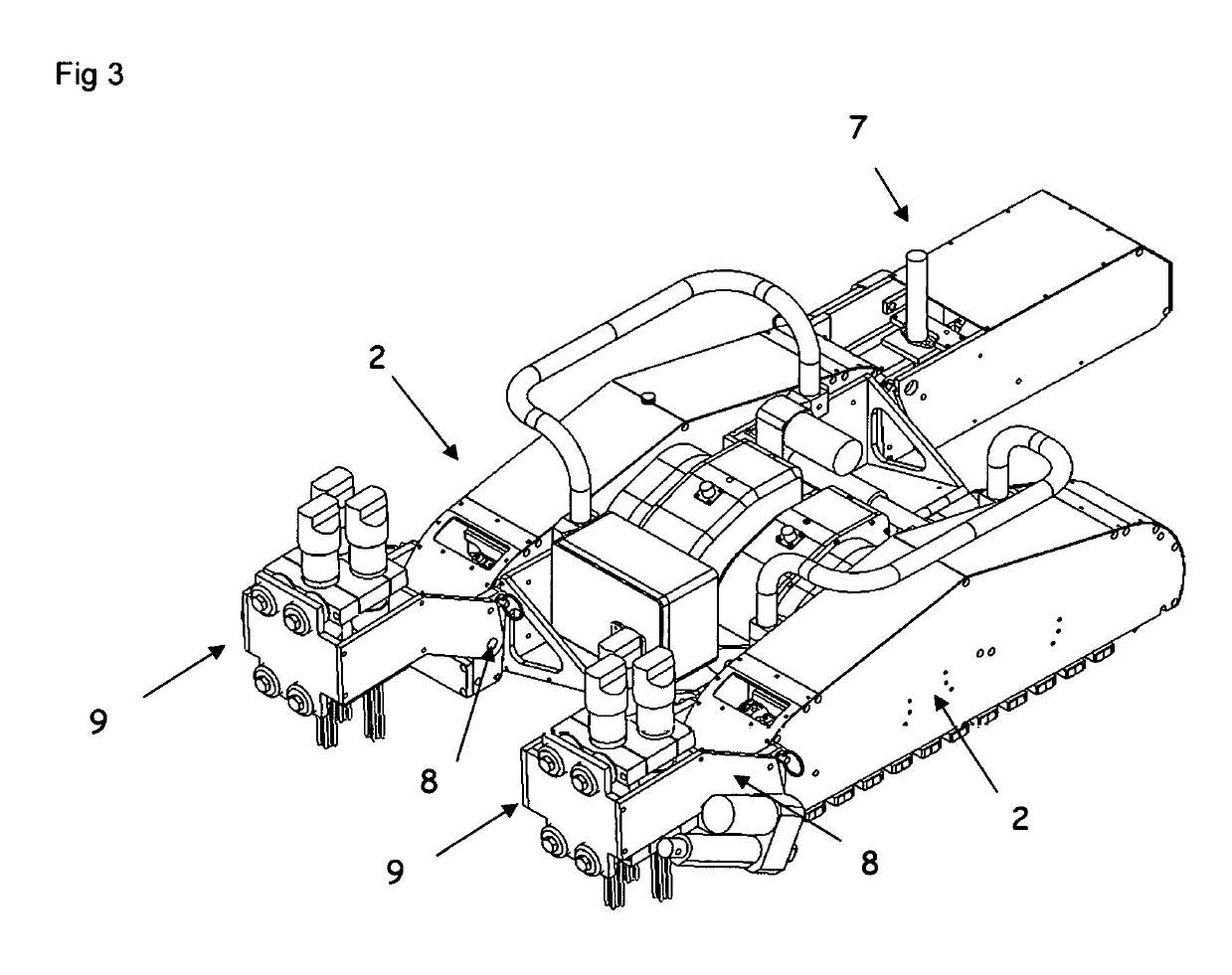Mobile, climbing endless track robotic system to perform remote inspections on structures
a robotic system and remote inspection technology, applied in the direction of instruments, computing, electric digital data processing, etc., can solve the problems of increasing the cost of such inspection, posing a safety hazard to the human operator, and reducing the holding power, so as to limit the parasitic motion
- Summary
- Abstract
- Description
- Claims
- Application Information
AI Technical Summary
Benefits of technology
Problems solved by technology
Method used
Image
Examples
Embodiment Construction
[0031]Detailed descriptions of the preferred embodiment are provided herein. It is to be understood, however, that the present invention may be embodied in various forms. Therefore, specific details disclosed herein are not to be interpreted as limiting, but rather as a basis for the claims and as a representative basis for teaching one skilled in the art to employ the present invention in virtually any appropriately detailed system, structure or manner.
[0032]In FIG. 1, the climbing endless track vehicle (1) which comprises of one or more track units (2) connected to a chassis (3). The chassis can be a rigid member or have one or more active or passive degrees of freedom to allow some degree of relative mobility between the track units (2) to permit greater adaptation to various climbing surfaces. The chassis (3) shows a rotational degree of freedom along the longitudinal axis between the track units through the hinge (50) and actuator (51). When the chassis contains one or more deg...
PUM
 Login to View More
Login to View More Abstract
Description
Claims
Application Information
 Login to View More
Login to View More - R&D
- Intellectual Property
- Life Sciences
- Materials
- Tech Scout
- Unparalleled Data Quality
- Higher Quality Content
- 60% Fewer Hallucinations
Browse by: Latest US Patents, China's latest patents, Technical Efficacy Thesaurus, Application Domain, Technology Topic, Popular Technical Reports.
© 2025 PatSnap. All rights reserved.Legal|Privacy policy|Modern Slavery Act Transparency Statement|Sitemap|About US| Contact US: help@patsnap.com



